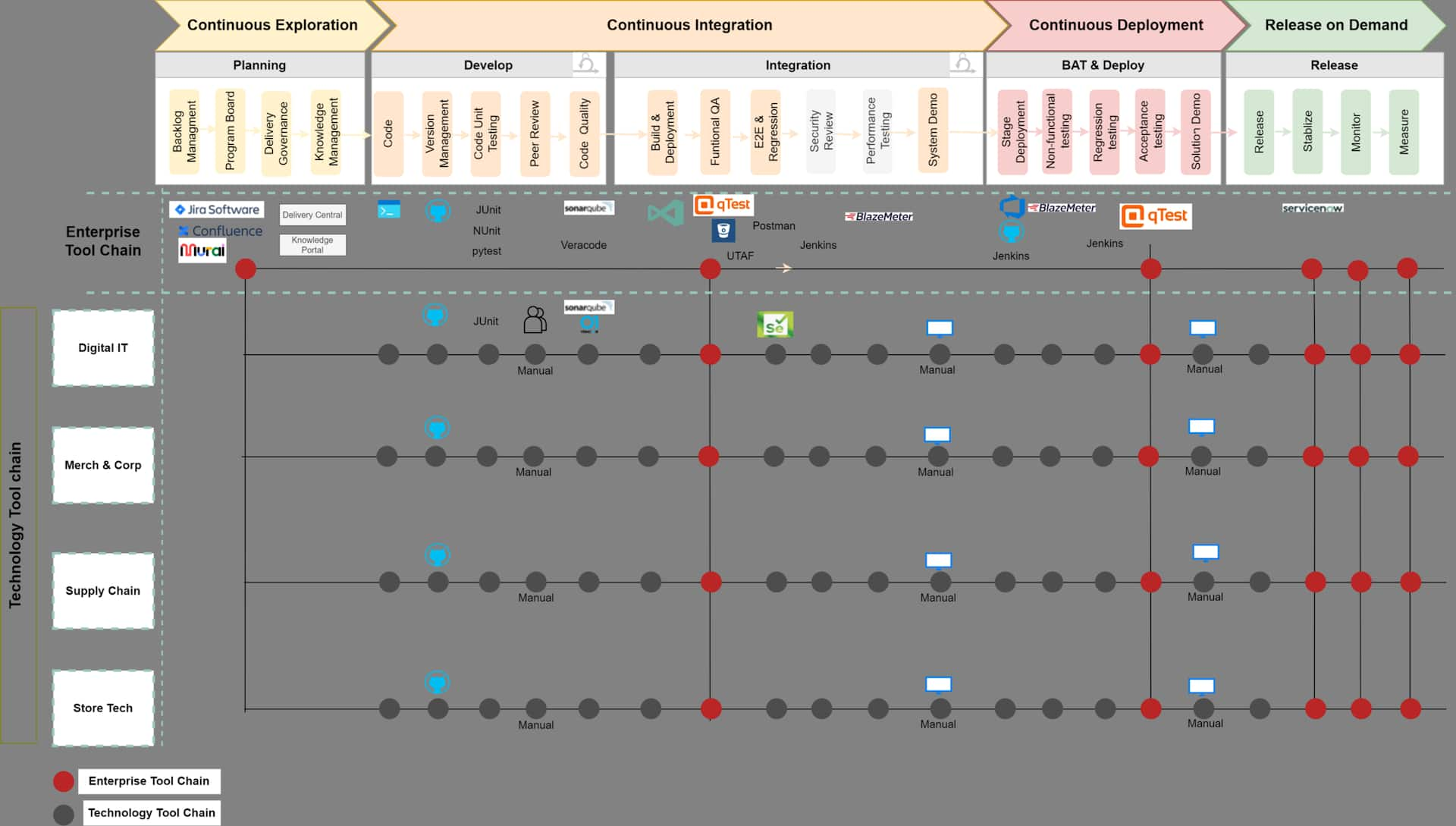In the context of Agile development, a toolchain architecture refers to the collection of software tools and systems that support the entire software development lifecycle, from planning and coding to testing and deployment. It encompasses a set of interconnected tools and processes that work together to facilitate collaboration, automation, and efficient software development practices within an Agile environment.
The toolchain architecture typically includes a combination of specialized tools and platforms that serve different purposes throughout the Agile development process. These tools can include project management software, version control systems, integrated development environments (IDEs), continuous integration/continuous delivery (CI/CD) tools, automated testing frameworks, and deployment and monitoring platforms, among others.
The primary goal of a toolchain architecture in Agile is to streamline and automate various aspects of the development process, enabling teams to work more effectively and deliver software incrementally. It promotes collaboration, visibility, and traceability by providing a centralized platform where team members can share information, track progress, manage tasks, and integrate their work seamlessly.
By adopting a well-designed toolchain architecture, Agile teams can enhance their agility, improve software quality, reduce time to market, and respond quickly to changes in requirements or customer feedback. It enables iterative and incremental development, fosters continuous integration and delivery practices, and empowers teams to deliver value to stakeholders consistently.
It's important to note that the specific toolchain architecture can vary based on the needs and preferences of each Agile team or organization. Different teams may utilize different tools and combinations thereof, depending on factors such as project complexity, team size, technology stack, and specific Agile methodologies being followed (e.g., Scrum, Kanban).





